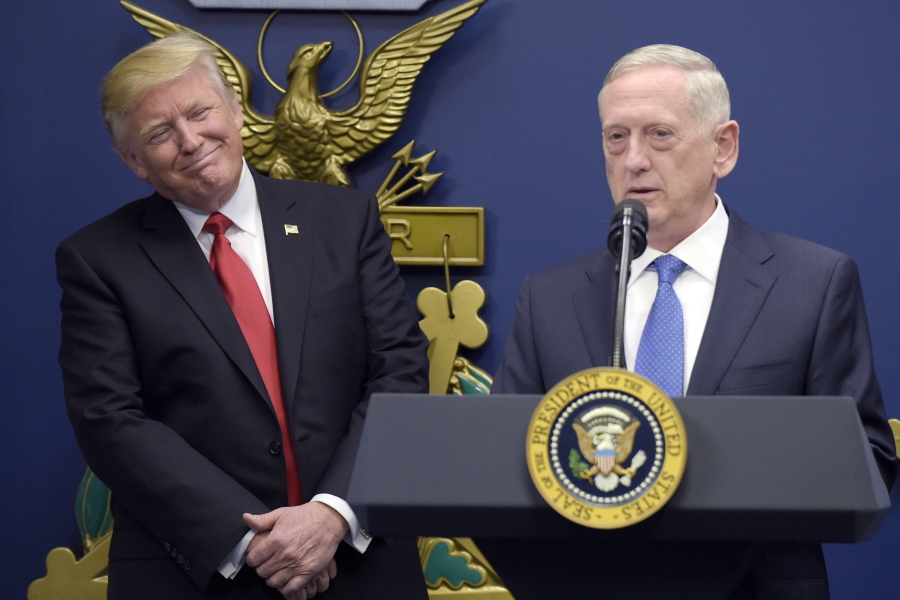WASHINGTON — Other than a tweet, President Donald Trump hasn’t said how he’ll stop North Korea from threatening America with a nuclear weapon. And as his Pentagon chief visits key allies in Asia, neither Trump nor his allies in Congress seem settled on any plan.
The fight against the Islamic State group is the new administration’s top national security priority, but Defense Secretary Jim Mattis chose South Korea and Japan for his first official overseas trip. Mattis will look to reassure the nations on the front line against North Korea.
Americans are seeking reassurance, too. Concern has surged on both sides of the Pacific about the North’s weapons programs, after leader Kim Jong Un warned in his annual New Year’s address that the country is in the final stages of readiness to test-launch an intercontinental ballistic missile that could potentially threaten the continental United States.
In Washington this week, the Senate Foreign Relations Committee held its first policy hearing since Trump took office to discuss North Korea. There were more questions than answers.
Last month, Trump fueled speculation of possible U.S. military action to pre-empt North Korea’s weapons development. In response to Kim’s threat, Trump tweeted, “It won’t happen!” But he didn’t elaborate how he could be so sure.
“Does that mean we have drawn a red line?” Sen. Ben Cardin, D-Md., asked at Tuesday’s Senate hearing.
Those questions and more will be posed to Mattis when he meets officials in Seoul today and Tokyo later in the week, two allies that host nearly 80,000 U.S. troops.
During the campaign, Trump complained that defense treaties disadvantaged the U.S. and that he would not rule out abandoning signatories if they refuse to pay more for their defense. He also suggested that South Korea and Japan, which are already within the range of North Korean missiles, might acquire their own nuclear weapons rather than rely on U.S. deterrence.
“It was a smart decision” to visit these allies early, former Defense Secretary Chuck Hagel said in an interview. He believes officials in Tokyo and Seoul are wondering: “Can we rely on the U.S.? What is the future here?”
In phone conversations last weekend with the leaders of South Korea and Japan, Trump offered reassurance, saying the U.S. defense commitment to both nations was “ironclad.” The commitment didn’t answer how his administration would tackle the North Korean threat.



